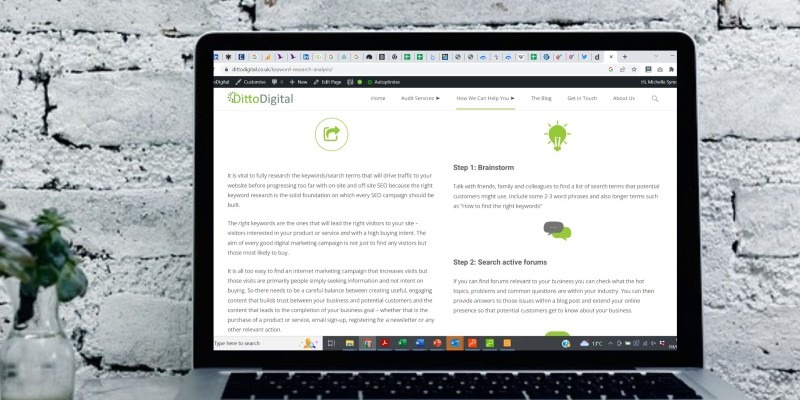
While a business often concentrates on creating new blogs, articles and other content for its website, what becomes of the old content? A website is one of your most vital marketing tools for a business so it's essential that it looks good and performs well. Therefore, it is worth reviewing the old content, which for some, could mean content from many years ago.
However, we don’t recommend deleting the old content. First perform a content audit to identify anything that is out of date and also content on similar topics that could potentially be merged. In some cases, it's worth keeping the content, but updating as necessary or carrying out a complete rewrite. There is also more that can be done if you don't feel these options will work.
Simply deleting pages will lose any potential backlink history so there is likely a good case for keeping the URL and updating the piece or at least redirecting that page to newer, more relevant content.
Of course, if the content cannot be revitalised, it could well be time to delete it, but not before checking the value of the URL and answering the following questions.
Does your old content?
- Answer a question or solve a current pain point.
- Is it accurate, informative and helpful?
- Does it look good, being easy to read and understand on all device types?
Once you have decided which articles are not worth revamping or saving, then it's time to check the numbers.
Check the metrics - the URL could have value
Knowing the numbers, and the value of each page requires you to review the content to identify some key metrics that tell you the hidden value of the content. Deleting the page will lose this value. It can take a long time for a page to feature in Google search results, and you may be surprised that some of your older posts are attracting traffic. (Check if this is the case by looking at your Google Analytics data.) 'Evergreen' content will stand the test of time and is likely to continue doing so if you spend time refreshing it to update sources, check links are still valid and edit as needed. Changing or adding images or video content and updating the posting date will improve relevance to both Google and the users.
If the page content does not receive many visitors and is now outdated or irrelevant, or far from the look or quality you want for your brand, there could still be hidden value in the URL. An established URL could have backlinks to it from other websites built over time which will be more valuable to the online visibility of the whole website than any new page you create. If your existing URL has the benefit of backlinks, it is better to revamp the old page keeping the current URL, and backlink value earned. (Check for backlinks using a tool such as Ahrefs)
When to delete old content (and what to do beforehand)
If, after considering the above, you conclude that your content has no value, it is probably time to delete it.
If you have changed your business focus, or the topic is no longer relevant, even with tweaks, it is likely to be time to say goodbye. Before hitting the delete button, check our three points below and follow our last tips on what you should do before you delete the old page.
Double-check that:
- The page isn't getting any traffic (via Google Analytics)
- There are no valuable backlinks (via Ahrefs, SEMRush, SEO PowerSuite etc)
- The page does not rank for any keywords (via Ahrefs, SEMRush, SEO PowerSuite etc)
If the page isn't being noticed by people or search engines, no one will miss it when it goes!
If the metrics show that the page has some value, then it's worth protecting the value built up in the URL. Keep the URL but revamp, refresh and rewrite the content to update it to be relevant and current.
When only deletion will do
Before the actual deletion, there one more point to address. Deleting the page will leave a 404 “page not found” error for humans or search engines trying to access the page. This can damage your search rankings if you have other pages linking to the removed page, as they will suffer from what is known as a “broken link”. To avoid this, you should set up a permanent 301-page redirect. It is important to redirect to a page with content relating to the original page and follow Google's advice not to redirect to a home or category page.
Final Thoughts
Your website should be a powerful marketing tool, but it requires regular attention to remain optimised, current and relevant to your business. There is always value in completing a website audit regularly, removing items that bring no benefit, and refreshing old content. If the task seems too daunting, you might want to turn to an expert for help. Ditto Digital perform website audits and content audits and are experts at fully optimising a website to ensure it attracts the right visitors and converts those visitors to customers.
- Log in to post comments
Join the Chamber
Be a part of the largest business membership organisation in the region and tap into a range of valuable business benefits.
